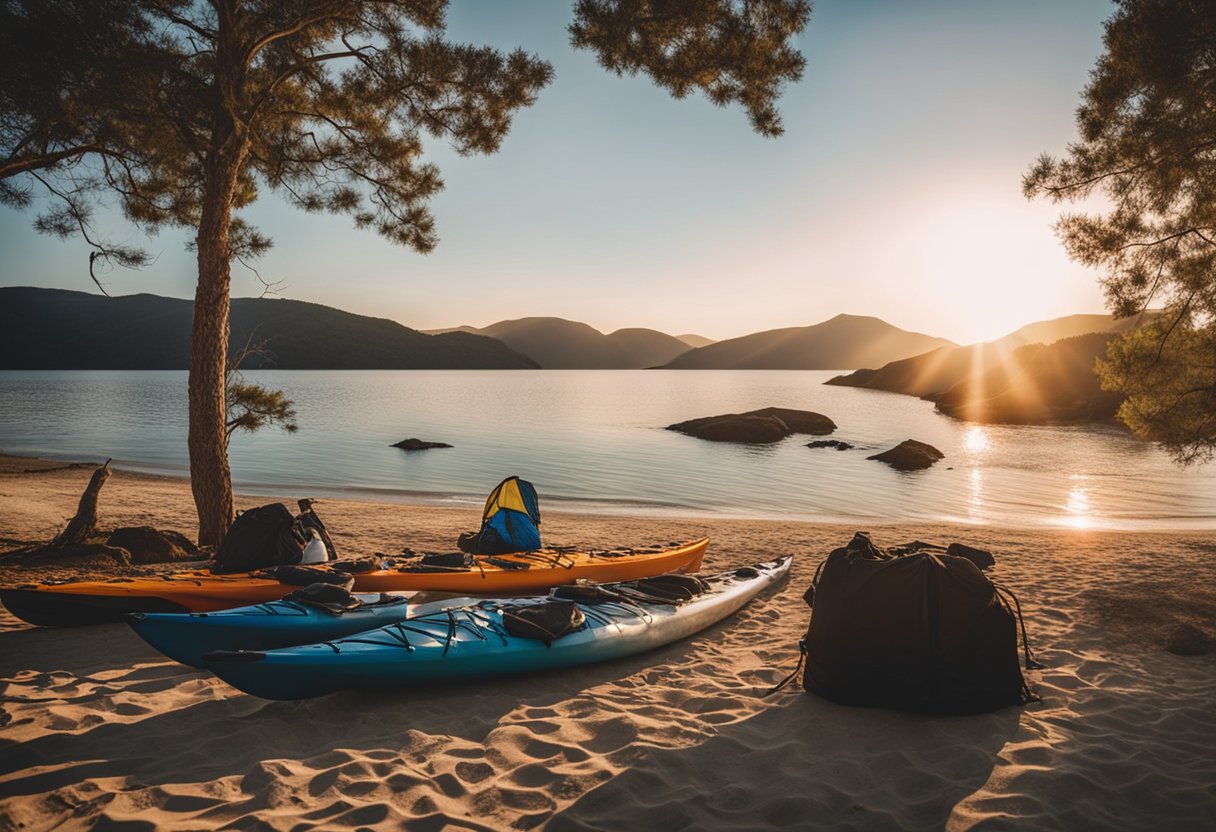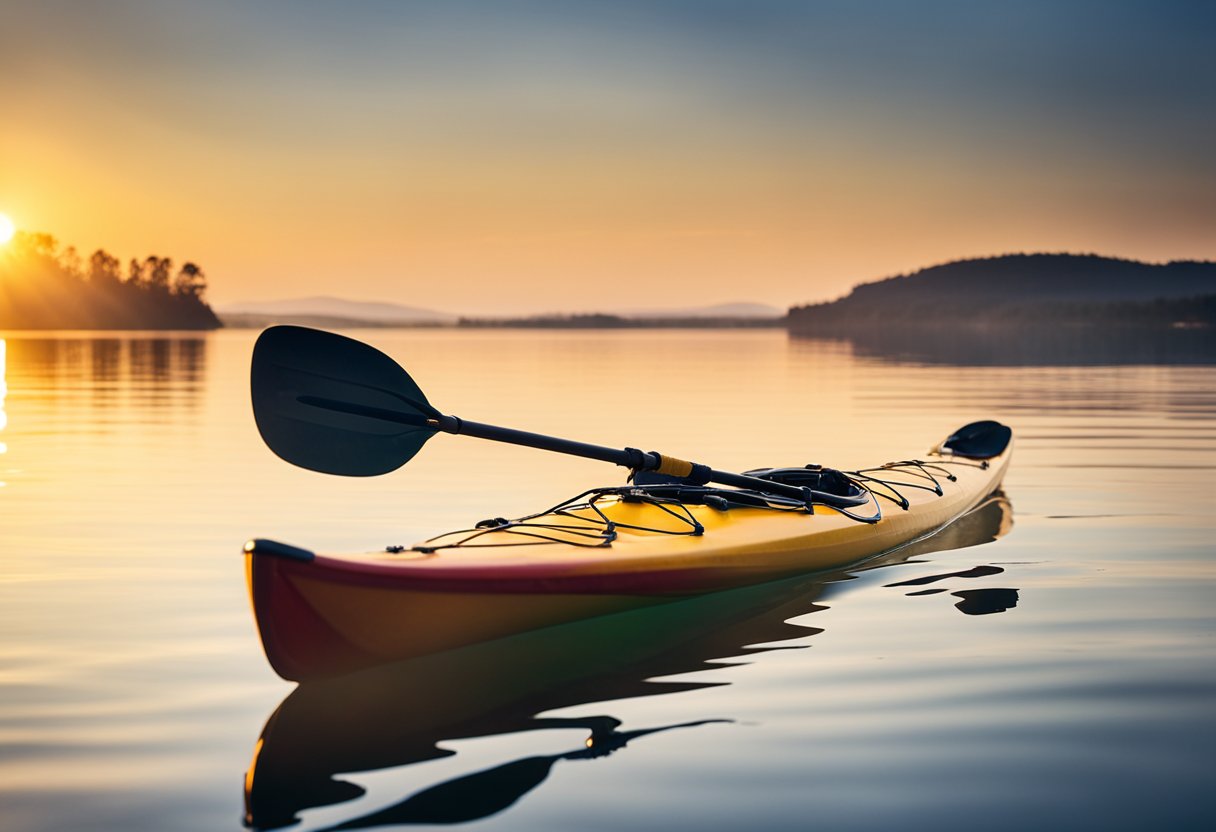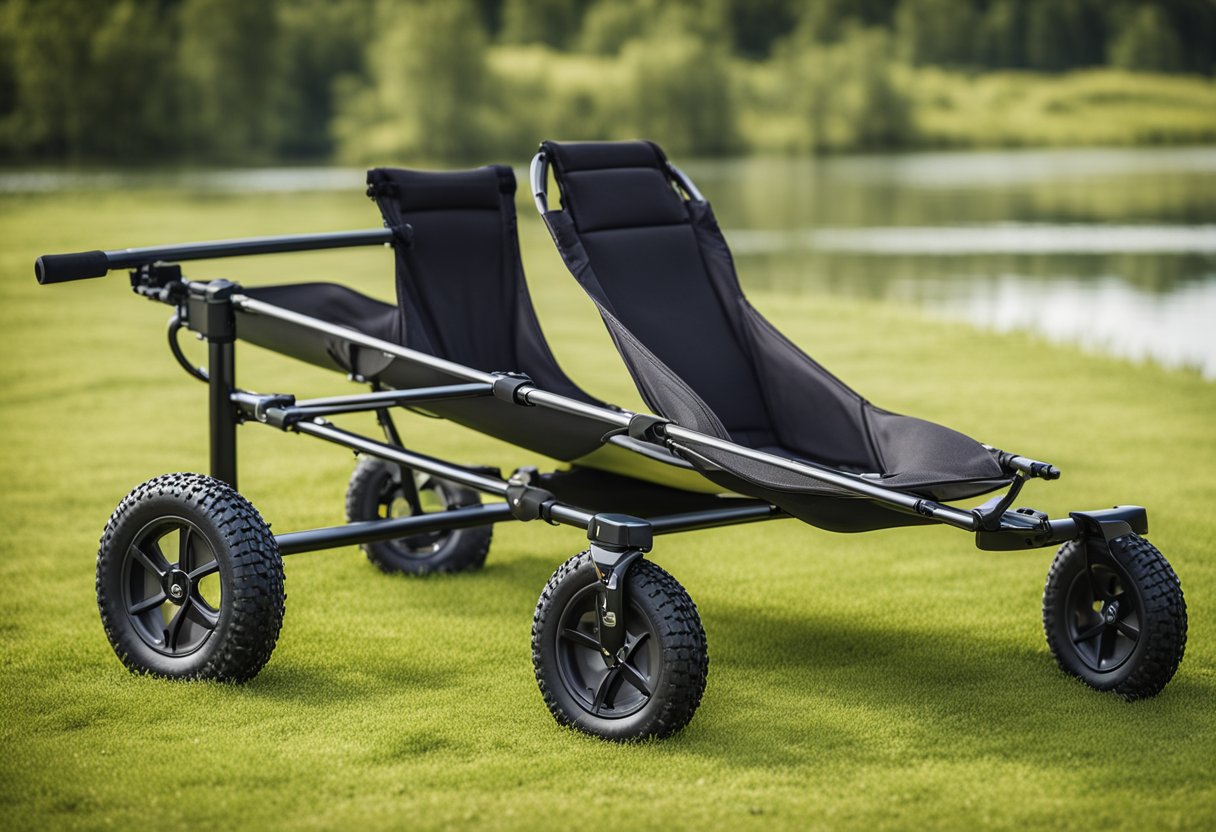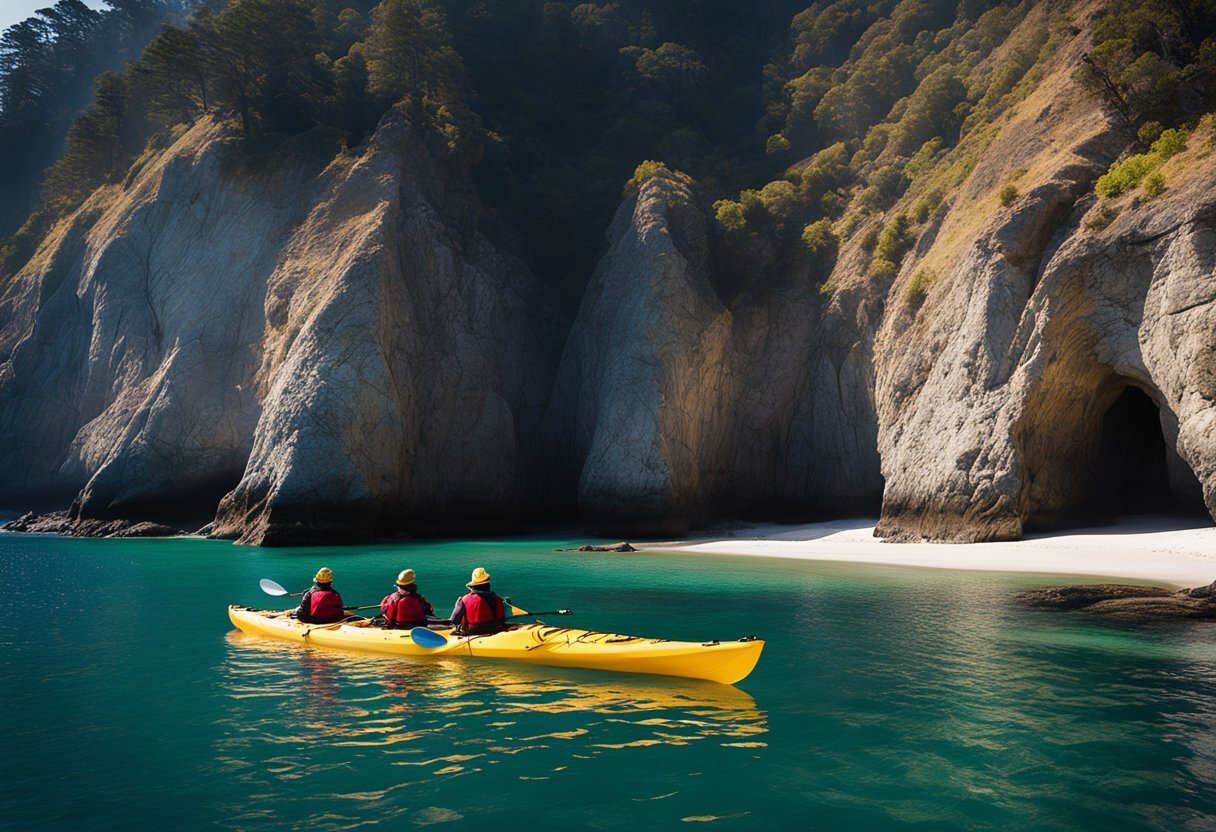Kayak camping is an exciting way to explore the great outdoors. It allows you to access remote locations that are otherwise inaccessible by foot or car. However, to make the most of your overnight kayak camping trip, you need to have the right gear. In this article, we will provide a comprehensive gear guide for overnight kayak camping trips to help you prepare for your next adventure.

The gear you need for kayak camping will depend on the length of your trip, the weather conditions, and your personal preferences. Some essential items include a kayak, paddle, life jacket, camping gear, and food and water. However, there are many other items that can make your trip more comfortable and enjoyable. In this article, we will cover everything from tents and sleeping bags to cooking equipment and navigation tools. Whether you’re a beginner or an experienced kayaker, this gear guide will help you plan and prepare for your next overnight kayak camping trip.
Essential Kayak Camping Gear
When planning an overnight kayak camping trip, it’s important to have the right gear to ensure a safe and comfortable experience. Here are some essential items to consider:
Kayak and Paddle
The kayak and paddle are the backbone of any kayak camping trip. It’s important to choose a kayak that is well-suited for your needs and skill level. A touring kayak is a good choice for longer trips, while a recreational kayak is better for shorter trips. The paddle should also be chosen based on your needs and preferences.
Personal Flotation Device
A personal flotation device (PFD) is a must-have item for any kayaker. It should be worn at all times while on the water, and should fit snugly to ensure maximum safety. Look for a PFD that is designed specifically for kayaking, with features like pockets for storage and adjustable straps for a comfortable fit.
Dry Bags for Gear Protection
Keeping your gear dry is essential for a successful kayak camping trip. Dry bags are a great way to ensure that your gear stays dry and protected from the elements. Look for bags that are made from durable, waterproof materials and come in a variety of sizes to accommodate all of your gear.
Overall, having the right gear is key to a successful kayak camping trip. By investing in quality gear and taking the time to plan ahead, you can enjoy a safe and comfortable experience on the water.
Shelter and Sleeping System

Tent or Hammock
When it comes to choosing between a tent or a hammock for an overnight kayak camping trip, it all comes down to personal preference. Hammocks are lightweight, easy to set up, and provide a unique camping experience. However, they are not suitable for all weather conditions and may not provide enough protection from the elements. On the other hand, tents offer more protection and privacy, but they tend to be heavier and take up more space.
Sleeping Bag
Choosing the right sleeping bag is crucial for a comfortable night’s sleep on a kayak camping trip. It is essential to consider the temperature rating of the sleeping bag and match it with the expected weather conditions. Down sleeping bags are lightweight and compressible, making them ideal for backpacking trips. However, they are not suitable for wet conditions as they lose their insulating properties when wet. Synthetic sleeping bags are bulkier but can handle moisture better than down sleeping bags.
Sleeping Pad
A sleeping pad is crucial for a comfortable night’s sleep on a kayak camping trip. It provides insulation and cushioning against the hard ground. Self-inflating sleeping pads are convenient and easy to use, but they tend to be heavier and bulkier. Inflatable sleeping pads are lightweight and packable but require manual inflation. Closed-cell foam sleeping pads are the most durable and lightweight but provide less cushioning than inflatable or self-inflating sleeping pads.
Overall, choosing the right shelter and sleeping system is essential for a successful kayak camping trip. It is essential to consider personal preferences, weather conditions, and weight and space limitations when making these decisions.
Navigation Tools

Waterproof Map
A waterproof map is an essential tool for any overnight kayak camping trip. It provides a detailed overview of the area, including waterways, landmarks, and potential hazards. When choosing a waterproof map, it’s important to select one that is up-to-date and covers the specific area you will be exploring. You can also consider laminating the map or using a waterproof map case to protect it from water damage.
Compass
A compass is another crucial tool for navigation during a kayak camping trip. It helps you determine your direction of travel and can be used to navigate through unfamiliar waterways. When selecting a compass, look for one that is easy to read, accurate, and durable. It’s also important to learn how to use a compass before your trip to ensure you can navigate effectively.
GPS Device
A GPS device is a modern navigation tool that can be useful for kayak camping trips. It provides real-time location information, which can be helpful in case of an emergency or if you get lost. However, it’s important to keep in mind that GPS devices can be unreliable in certain areas, such as deep canyons or heavily wooded areas. It’s also important to bring extra batteries or a portable charger to ensure your device stays powered throughout your trip.
Overall, having a variety of navigation tools, including a waterproof map, compass, and GPS device, can help ensure a safe and successful overnight kayak camping trip.
Clothing and Personal Items

Quick-Dry Clothing
When it comes to clothing for overnight kayak camping trips, it is important to prioritize quick-drying materials. This is because kayaking and camping involve exposure to water and moisture, which can make traditional cotton clothing uncomfortable and take a long time to dry. Instead, opt for synthetic materials such as polyester or nylon, which dry quickly and are lightweight. Quick-dry clothing is also great for layering, allowing campers to easily adjust their body temperature as needed.
Sun Protection
Sun protection is crucial when spending extended periods of time outdoors, especially on the water. In addition to wearing a hat and sunglasses, campers should also consider using sunscreen with a high SPF rating to protect their skin from harmful UV rays. It is also recommended to wear long-sleeved shirts and pants made of lightweight, breathable materials that offer UPF protection.
Personal Hygiene
Maintaining personal hygiene during overnight kayak camping trips is important for both comfort and health reasons. Campers should bring biodegradable soap and a small towel to wash themselves with in the water or at designated campsites. Additionally, bringing wet wipes can be helpful for quick clean-ups. It is also recommended to bring a small first aid kit for any minor injuries that may occur during the trip.
Food and Water Supplies
Portable Cooking Equipment
When it comes to overnight kayak camping trips, having the right portable cooking equipment is essential. Lightweight and compact equipment is preferred, as it is easier to pack and carry. A portable stove is a great option, as it allows for cooking meals quickly and efficiently. Some popular options include the Jetboil Flash or the MSR PocketRocket 2. Additionally, packing a small pot, pan, and utensils can help make cooking and meal prep easier.
Water Filtration System
Access to clean drinking water is crucial on any camping trip, especially when kayaking. Bringing a water filtration system can help ensure that water from natural sources, such as rivers or lakes, is safe to drink. A popular option is the Sawyer Mini Water Filtration System, which is compact and lightweight. It can filter up to 100,000 gallons of water and removes 99.9999% of bacteria and protozoa.
Non-Perishable Food
When packing food for an overnight kayak camping trip, it is important to choose non-perishable options that can withstand the elements. Canned foods, such as beans or soup, are a great option as they are easy to pack and can be heated up quickly. Other popular options include dehydrated meals, energy bars, and trail mix. It is important to bring enough food to sustain energy levels throughout the trip, while also being mindful of weight restrictions.
Overall, having the right food and water supplies can make all the difference on an overnight kayak camping trip. By packing lightweight and compact equipment, a water filtration system, and non-perishable food, campers can enjoy a safe and enjoyable trip.
Safety and Emergency Equipment

First Aid Kit
A well-stocked first aid kit is a must-have for any overnight kayak camping trip. It should contain basic supplies such as bandages, gauze, antiseptic wipes, adhesive tape, and pain relievers. Additionally, it should include any personal medications that may be needed.
Emergency Shelter
An emergency shelter is crucial in case of unexpected weather conditions. A lightweight and compact shelter, such as a tarp or bivy sack, can provide protection from rain, wind, and cold temperatures. It is recommended to bring one for each member of the camping party.
Signaling Devices
Signaling devices can be used to attract attention in case of an emergency. Whistles, flares, and mirrors are all effective options. It is important to ensure that these devices are easily accessible and in good working condition.
Overall, it is important to prioritize safety and emergency preparedness on any overnight kayak camping trip. By packing the right equipment and being knowledgeable about potential risks, campers can enjoy their trip with peace of mind.
Additional Accessories
Headlamp or Flashlight
When camping overnight, it’s important to have a reliable source of light. A headlamp or flashlight is essential for navigating around your campsite in the dark or finding your way to the restroom. A headlamp is a hands-free option that can be worn on your head, while a flashlight can be held in your hand. Look for models with adjustable brightness settings and long battery life.
Multi-Tool
A multi-tool is a versatile accessory that can come in handy during a camping trip. It typically includes a variety of tools such as pliers, knives, screwdrivers, and can openers. A multi-tool can be used for everything from preparing food to repairing gear. Look for a model that is lightweight and compact, so it won’t take up too much space in your kayak.
Kayak Repair Kit
A kayak repair kit is an essential accessory for any overnight kayak camping trip. Accidents can happen, and having a repair kit on hand can mean the difference between continuing your journey or having to cut it short. Look for a kit that includes patches, glue, and a pump. Make sure to familiarize yourself with the repair process before you head out on your trip.
By bringing these additional accessories on your overnight kayak camping trip, you’ll be better prepared to handle any situation that may arise. Whether you need to navigate in the dark, fix a gear issue, or repair your kayak, these accessories will help you stay safe and comfortable throughout your journey.




